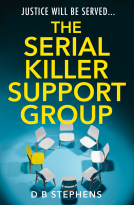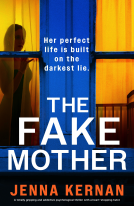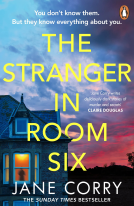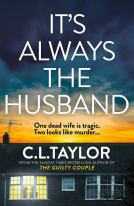
Wholeness
Changing How We Think About Healing
by Christy Wimber; Katherine Welby-Roberts
This title was previously available on NetGalley and is now archived.
Send NetGalley books directly to your Kindle or Kindle app
1
To read on a Kindle or Kindle app, please add kindle@netgalley.com as an approved email address to receive files in your Amazon account. Click here for step-by-step instructions.
2
Also find your Kindle email address within your Amazon account, and enter it here.
Pub Date 19 Apr 2019 | Archive Date 24 Sep 2019
Lion Hudson Ltd | Monarch Books
Talking about this book? Use #Wholeness #NetGalley. More hashtag tips!
Description
The world is changing; culture is shifting. Never has safety and security been more desired. What shakes also spills. Pressure spills to the surface. And when struggles become visible, safety becomes more invaluable.
We only encounter true freedom and wholeness when we know we can speak and hear truth with no fear of retribution. Look at the ministry of Jesus. He created spaces of safety. He also never blamed people for how they got sick. Jesus' invitations are never based on whose struggles are more easily dealt with. In His Kingdom, in His house and under His care, there is no 'us' and 'them'. Jesus said over and over that He came for the sick, the broken, the oppressed, depressed, those caught in chains. He came for us. Each person, as well as every part of who we are, body, soul and spirit, matters to God. And if it matters to God, it must matter to us.
With the world changing so are people's struggles. In years past what worked in prayer and ministry may not work today, because people's concerns and experiences of personal difficulties have changed. And just with anything else we should be growing in how we learn and deliver ministry. God wants to bring people into wholeness. And one of the greatest acts of kindness we can do is provide a safe place in order to witness people's struggles, so that we may love, care for and pray and minister to them more effectively.
A Note From the Publisher
https://christywimber.com/
@ChristyWimber
https://christywimber.com/
Available Editions
| EDITION | Other Format |
| ISBN | 9780857219176 |
| PRICE | US$14.99 (USD) |
| PAGES | 224 |
Links
Featured Reviews
I was looking forward to reading this given the subject matter based on looking at God's view on mental healing. However I feel that this was written as more for the benefit of the authors than for those who are searching for answers. Some of the passages admitting failings and uncertainty, although seemly humbling, left me feeling like an intruder into lives unknown to me personally and I was not assured by this. Sorry but I cannot recommend this writing style and will look elsewhere for such teaching and advice.
 Vicki C, Reviewer
Vicki C, Reviewer
I was interested in reading this book partly because of who the author is but mainly because the theme of the book is of interest to me.
Christy Wimber shares openly in this book about her own struggles and also how God has changed her thinking on the subject of healing and wholeness. I admire anyone who allows God to change the way they have thought about a topic, especially when they have thought this way for some years as this is not easy. As I read I felt challenged to be more open to God changing the way I think.
Christy writes about how our scars show the pain we have gone through in our life, but that they also show we have survived. She writes that it's important not to hide our scars from people because when we reveal our scars it gives others hope that they too can survive whatever pain they are going through.
Included in this book are chapters on addiction and shame, how they can keep us from wholeness and how we can receive freedom and healing from them. In another chapter Christy explores the importance of trust and how choosing trust despite what we face, is vital for us on our journey towards wholeness.
Christy looks at the question, if God heals, why am I still sick? And in a chapter which I found particularly helpful, she looks at the meaning, purpose and goal of healing. In this chapter, she stresses how important it is for the church to be a place where others come and encounter love and acceptance which she says is healing in itself. How the church should be a place where people can receive help.
One chapter has been written by Katherine Welby-Roberts who suffers from anxiety, depression and chronic fatigue. She gives practical suggestions as to how we, as the church, can respond to those with mental ill health. It's a very helpful chapter which provides the reader with insightful information.
I do just have a couple of points to make which explains why I have given this book four stars rather than five. First, I did find it was a bit repetitive at times. Even within the same chapter, there was repetition which I felt was unnecessary - the repetition took from the clarity of the writing rather than adding to it by strengthening the point made. In my opinion, it would have benefitted from some additional editing. Secondly, the book seemed to end quite abruptly. I felt it would have been good to have a conclusion at the end to tie all the main points together. I do want to stress that these two points are just my personal opinion as a reader, and you may not feel the same when you read the book.
I would recommend this book to anyone who is interested in understanding the Biblical concept of wholeness, either from a personal viewpoint or because they want to be able to better support and encourage others in their own journey of wholeness, or because they want to be able to minister more effectively to others in their church and community.
 Reviewer 451445
Reviewer 451445
I requested this title mainly because I was aware of the authors (Katherine Welby-Roberts contributes a chapter) and I hoped it would bring a fresh angle on suffering, healing and wholeness. I wouldn't say it brings a whole lot that's new to the table but it's always worth hearing opinions on the topic of wholeness and how your own views on healing can change over time. It is worth reading and is relatively short at 224 pages. I did find it a little repetitive at times and felt the writing needing tightening up a bit, perhaps an editor going through it one last time. There is also a point not far into the book when Wimber lists famous Christians through history who have suffered varying kinds of mental illness (or mental ill health as is the preferred term here). Wimber states that Swiss theologian Karl Barth had a breakdown after writing his commentary on Romans. I hadn't heard this before so looked it up and could find no reference to it online. Wimber doesn't (as far as I can tell) provide a reference from where this information comes from so I couldn't look it up. I'd have appreciated information on the source for this claim for further research. It's worth reading but I'm not sure I would re-read it.
Thanks to NetGalley and Lion Hudson/Monarch Book for ARC.
 Reviewer 489688
Reviewer 489688
Read and reviewed in exchange for a free copy from NetGalley. This was a fantastic book. Easy to read but shared some fantastic spiritual truths and messages which I needed to hear.
 Sarah G, Reviewer
Sarah G, Reviewer
I came to this book to gain a greater understanding of helping and wholeness from a faith perspective. The book achieves some of this and read in the context ext of leading a church or exploring this issue and how to apply it in ministry with a group of others I think would have been helpful. There are some excellent, human, honest stories, some grounding in a factual medical and wellbeing context and reflection on Christ. I found at times it lectured to Christian leaders more than engaged me in reflection and exploration. As one book in a wider study on the subject matter it brings some good perspectives to the discussion. Study, reflect and discuses it with a group of other Christians in leadership and I think it will raise some good ideas, compassionate response and action.


















